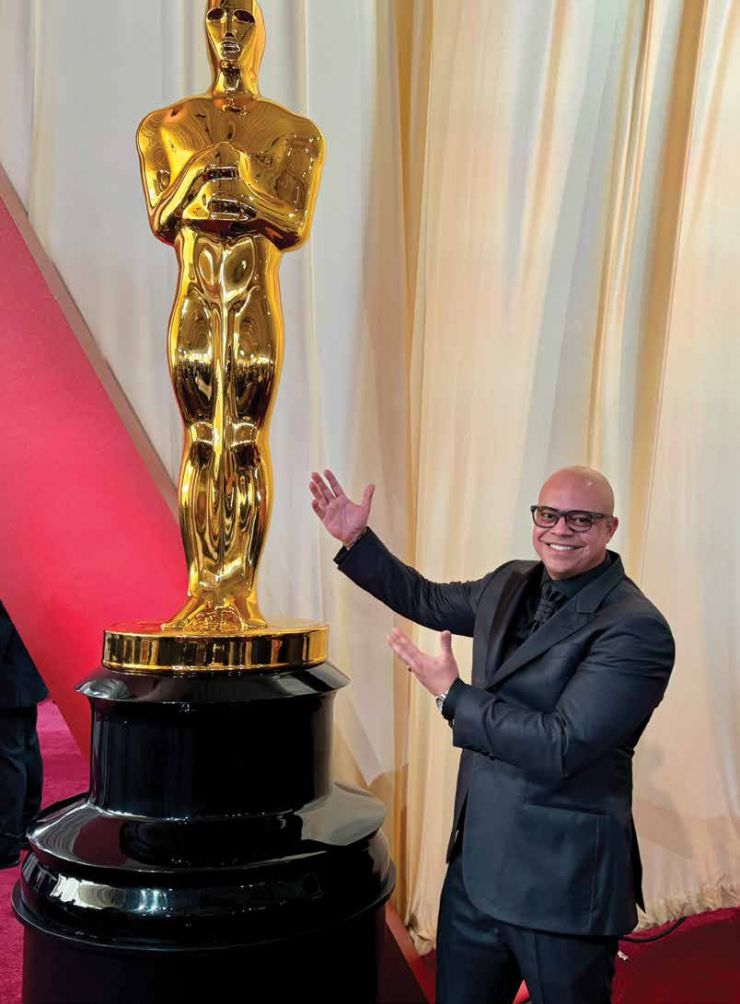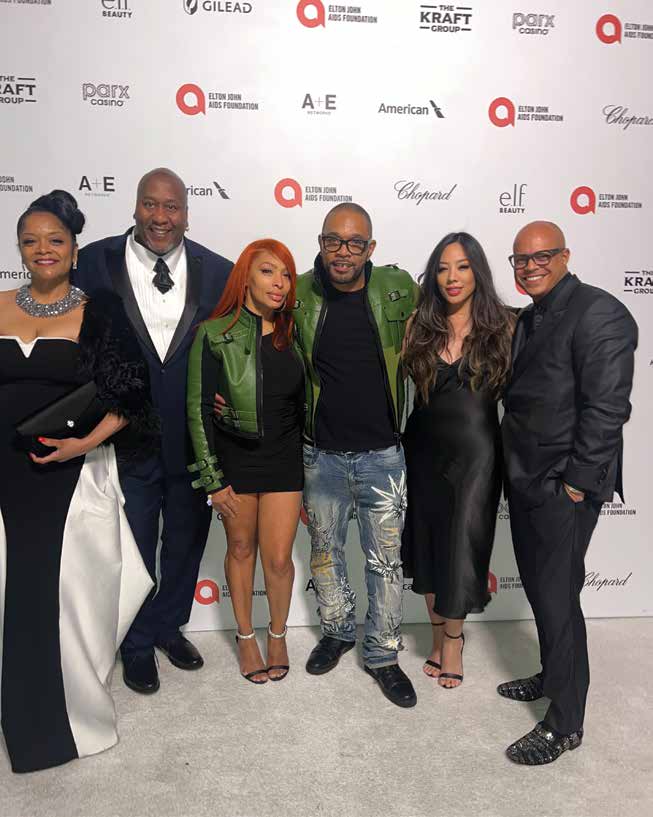From Cage to Stage
April 24, 2025
JJ Velazquez describes the long and winding road from wrongful incarceration to the Oscars.

“[For the] Oscars we’re driving, and all these streets are blocked off. You got soldiers and police out there with rifles and dogs, searching every vehicle. It was a whole traffic jam of celebrities and vehicles trying to get to the red carpet, it was a lot,” he adds.
Attending one of the most glamorous and exclusive events in the world was quite a reversal of fortune for Velazquez, who spent nearly 24 years in jail for a crime he did not commit. At age 22, he was wrongfully convicted and incarcerated. He’s only been a free man again since September 2021, when he was granted clemency and later exonerated.
Velazquez attended the Oscars this March in recognition of his role in Sing Sing, a film where he acted alongside Coleman Domingo, Clarence Maclin, and Paul Raci. It received three Academy Award nominations.
Many of the film’s actors, like Velazquez, were formerly incarcerated men who shared an authentic connection to the story. “Essentially 85% of the cast had gone from the cage to the stage and now are representing humanity in one of its rarest forms, in film,” Velazquez says.
Filmed in just 18 days, Sing Sing tells the story of a man wrongfully imprisoned who finds hope through the Rehabilitation Through the Arts (RTA) program, a real-life program within Sing Sing prison, producing a comedy with incarcerated men as the theatre troupe. For Velazquez, the film’s narrative hits close to home.
Sing Sing started shooting in July 2022, just nine months after Velazquez’ release. “Yeah, that’s the emotional aspect of it,” Velazquez says. I spent 23 years, seven months, and eight days fighting to get out of prison, to get out of those prison greens that we had to wear for so many years. So, of course, there was a level of trauma, trepidation, and hesitation to going back and wearing the uniform I fought so hard to get out of. I remember the first day of wardrobe and I’m telling everybody, ‘How many of you expected to put this uniform back on? I know I didn’t!’”

“We all realized the mission was bigger than any one of us, and in fact, even bigger than us collectively together,” Velazquez says. “We wanted [this movie] to have a bigger social conversation about the realities of mass incarceration and the fraudulent ideas that stem from fear about people and not seeing people’s humanity. We realized we had an opportunity to change the face of incarceration and change the conversation and perspective about the people that are incarcerated. This was much bigger than any one of us and it was absolutely necessary, so we toughened up and faced what we had to— we had to fight our own demons to make this movie.”
It also helped that they had a counselor on set for support. Initially, Velazquez thought he’d only serve as a consultant on the film. But then he had a surprising audition.
“I worked with RTA while I was in Sing Sing, so people from RTA reached out to me [once I was released],” he recalls. “We’re talking and they had me do an exercise where I close my eyes and describe this special place. I talk about being outside with my mother…and when I open my eyes, they said, ‘We want you in the movie.’ In the movie, where we’re all in the circle and I share an exercise, that’s the same thing I told them on the Zoom call. It was so powerful, they cast me and put it as a scene in the film.”
Filming also took place during the Hollywood strikes of 2022, adding a layer of complexity to the production. It was overcome in a unique way, according to Velazquez.
“We worked with an equity pay model, everyone got the same rate, so we’re all basically partners on this film,” he says. “I made the same amount as Domingo who made the same amount as wardrobe, or the director or producer. It’s all the same rate; the only differentiator is the amount of time. Essentially, it alleviated the big ‘I’ or little ‘you’—we’re all one team trying to make a win. Anything less would have been exploitation, and it would have impacted the authenticity of the film.”
Since Sing Sing’s release, Velazquez has stayed busy promoting the film while continuing to support those who are still incarcerated. He works as Program Director for the Frederick Douglass Project for Justice, an organization facilitating conversations between the public and incarcerated individuals to promote understanding and human connection. He also serves as the Executive Director of Voices from Within, a leadership and mentorship program he co-founded while incarcerated that promotes growth, development, and selfawareness as members share their story and become a support system through reintegration.
Velazquez’s journey has led him to strangely unexpected places, like the White House. “I envisioned myself being at the White House and talking to the president while I was in prison, though I didn’t know which president it was going to be, but I knew I would be there having a conversation about incarceration and what I experienced,” he says.

